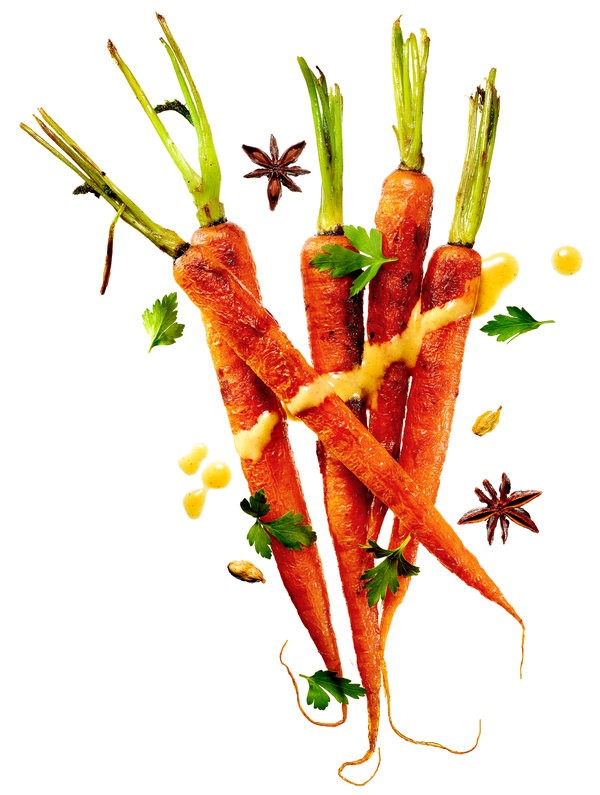Carrots 101
November 29, 2014 by Darcie
Carrots are staples for any cook: they are inexpensive, plentiful and oh so versatile. Most of us take them for granted because they can be found everywhere, at any time of year. But did you know they were first grown in Afghanistan? Carrot facts are the focus of a Food Republic article on the root vegetable. Besides the origin of the humble carrot, the article provides nine other facts that you might not know.
One interesting tidbit is the fact that carrots have seeds. Most of us don’t think about that, but of course that’s how the plants propagate. The seeds form in the green tops from tiny white flowers. The carrots we know and love are a cultivar of the wild carrot (known in America Queen Anne’s lace), and its flowers look very similar. Unfortunately, they also look like poison hemlock, so caution should be exercised in eating any wild plants that look like they might be carrots.
Another noteworthy fact is that cooked carrots are much better for you than raw carrots, as cooking allows more beta-carotene to be released. Eating raw carrots “only gives you three percent of this substance, but when you heat them up they release closer to 40 percent.”
Carrots are tough, too. In most places they can be stored in the ground all winter, if properly protected with a layer of mulch. Their structure can withstand freezing temperatures, despite being composed of 88% water. Besides being convenient, in-ground storage boosts carrots’ inherent sweetness. Visit Food Republic to learn more about the 20 different species of carrots available worldwide.
Photo of Slow-roasted carrots with brown-butter vinaigrette from EAT at The New York Times by
Categories
- All Posts (7079)
- Antipasto (2209)
- Author Articles (250)
- Book News (944)
- Cookbook Giveaways (996)
- Cookbook Lovers (262)
- Cooking Tips (116)
- Culinary News (299)
- Food Biz People (558)
- Food Online (800)
- Holidays & Celebrations (277)
- New Cookbooks (154)
- Recipes (1520)
- Shelf Life With Susie (231)
- What's New on EYB (134)
Archives
Latest Comments
- lexa25 on For the Love of Lemons by Letitia Clark – Giveaway
- lexa25 on Balli Balli – Cookbook Giveaway and Quick Bites
- charcb on For the Love of Lemons by Letitia Clark – Giveaway
- charcb on Balli Balli – Cookbook Giveaway and Quick Bites
- Jane on Introducing libraries to EYB at ALA
- fluffies on For the Love of Lemons by Letitia Clark – Giveaway
- Goulashgirl on Any way you slice it
- ChefClaireFVS on French at Heart – Cookbook Giveaway
- ChefClaireFVS on 20 Amici – 40 Ricette Cookbook Giveaway
- kitchen_chick on Salt Sugar MSG Cookbook Giveaway